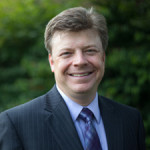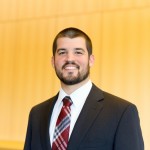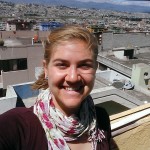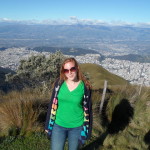Christian M. Lastoskie
Associate Professor
Christian Lastoskie is an associate professor of civil and environmental engineering at the University of Michigan, and the director of the university’s Environmental and Water Resources Engineering program. He conducts research on the impact of energy production and consumption on the environment, and the development of technologies to reduce pollutant emissions. Specific topics of his research include carbon capture and storage using novel synthetic adsorbents, and life cycle assessment of the environmental impacts of lithium ion battery manufacture and use in electric vehicles.
Prof. Lastoskie has authored seminal publications on the characterization of porous materials using atomistic simulation. He uses high performance computing for the physics-inspired molecular modeling and design of novel materials for chemical separations and energy storage. His research sponsors include the National Science Foundation, the National Institutes of Health, the Michigan Economic Development Corporation, and industrial partners. Prof. Lastoskie teaches courses on sustainability engineering principles, thermodynamics, environmental process engineering, and energy infrastructure systems.
Prof. Lastoskie received his B.S. degree in chemical engineering from the University of Delaware and his Ph.D. in chemical engineering from Cornell University. Prior to joining the University of Michigan, he was a senior member of the technical staff at Sandia National Laboratory and an assistant professor at Michigan State University. Prof. Lastoskie is a recipient of the NSF CAREER award and the 2008 Japan Carbon Award for Innovative Research. He was the 2012 Chair of the Environmental Division of the American Institute of Chemical Engineers.
Sahithya Reddivari
Ph.D. Candidate
Sahithya’s research focuses on modelling chemical reactions that cause capacity loss in lithium ion batteries. Sahithya graduated from Manipal University, India in 2010 and received her master’s degree from the University of Michigan in 2012. Outside of research, she enjoys teaching, traveling and desserts. She has been teaching the fluid mechanics lab for the past year and loves working in the lab, troubleshooting experiments and working with students. Sahithya is also working as an Engineering Teaching Consultant for CRLT Engin. She is an active member of GradSWE and has developed a number of STEM outreach programs in elementary schools around Ann Arbor and Ypsilanti, as a member of the GradSWE officer board.
Sahithya presently works with female engineering students in Liberia, helping them start a Society of Women Engineers student chapter in Liberia, West Africa. She is developing a leadership camp for female engineering students from the University of Liberia and the University of Michigan in collaboration with the Society of Women Engineers and the University of Michigan. She is also working on an engineering education research project – Towards a global network of women engineers, as part of her endeavors in Liberia.
Francisco Sotomayor
Ph.D. Candidate
Francisco’s research revolves around characterizing, predicting, and optimizing the adsorption characteristics of elastic layered metal-organic framework adsorbents for carbon dioxide capture applications. In collaboration with the National Science Foundation, adsorbent materials are synthesized in the laboratory and their adsorption characteristics are explored through adsorption measurements in static and flow systems. These experiments are combined with molecular simulations and adsorption theory calculations to generate adsorbent phase diagrams that relate transitions of the adsorbents’ structure, CO2 adsorption capacity, and CO2 selectivity to the pressure, temperature, and composition of the adsorbing gas mixture. The developed phase diagrams can then be used to predict an adsorbents’ carbon capture performance under a wide range of operating environments and for a variety of gas mixtures, including CO2 separation from flue gas, bio-gas, shale gas, and integrated gasification combined cycle synthesis gas.
Francisco Sotomayor graduated from the University of Florida in 2011 with a B.S. in Agricultural and Biological Engineering and obtained his M.S.E. in Environmental Engineering at the University of Michigan in 2012. Outside of his research, he currently spends his time working as an Engineering Teaching Consultant with the Center for Research on Learning and Teaching in Engineering. An active member of the Civil and Environmental Engineering Department community, Francisco has previously served as President of the Graduate Environmental Engineering Network of Professionals, Educators, and Students as well as Co-Chair of the Civil and Environmental Engineering Student Advisory Council.
Margaret Reuter
Ph.D. Candidate
Maggie’s research looks at the oxidation reaction between virus proteins and water disinfectants. A vital aspect of our water treatment systems is the inactivation of water borne pathogens. Despite having employed the same disinfection methods for decades the exact mechanisms by which they cause inactivation are poorly understood. Water treatment systems routinely administer disinfectants in higher concentrations than needed to achieve inactivation. This indiscriminate overdosing of water, particularly in the case of free chlorine, leads to the proliferation of harmful byproducts and unnecessary handling of dangerous chemicals. To elucidate disinfection mechanisms, Maggie is creating a predictive model to link virus inactivation and protein structure/function, using ReaxFF, Density Functional Theory, and Molecular Dynamics. The work will lead to improved water treatment and public health.
Maggie graduated from Cornell University with a B.S. in Environmental Engineering in 2011, and received a M.S.E in Environmental Engineering from the University of Michigan in 2015. She is currently holds leadership positions in the Graduate Society of Women Engineers; the Graduate Environmental Engineering Network of Professionals, Educators, and Students; and the Civil and Environmental Engineering Student Advisory Council. She has been known to bake cakes for her group mates’ birthdays and dissertation defenses.
Christina Reynolds
Ph.D. Candidate
Christina’s research involves a thorough analysis of solid adsorbents used in carbon capture and storage (CCS) operations on light duty vehicles. In collaboration with the EPA’s National Vehicle and Fuel Emissions Laboratory, experiments and modeling are completed to compare the capture performance, efficacy, and synthesis of different adsorbents, ranging from activated carbon to complex metal organic frameworks. Life cycle analysis is used to effectively compare all components involved in the creation, use, and disposal of each adsorbent. Additionally, climate modeling using the Earth Systems Model shows carbon cycle changes and alterations to climate conditions based on increasing adaptation of the mobile CCS technology. Supplementary studies will explore the policy drivers necessary to increase public awareness and consumer acceptance.
Christina received her B.S. in Civil Engineering from the University of Maryland with a focus in environmental and water resources and her M.S.E in Environmental Engineering from the University of Michigan. She is an ORISE fellow and a DOW Doctoral Sustainability Fellow, and serves on the executive board of the Graduate Society of Women Engineers. Her volunteer work includes fostering dogs from a local rescue and being a judge for regional Odyssey of the Mind competitions.





